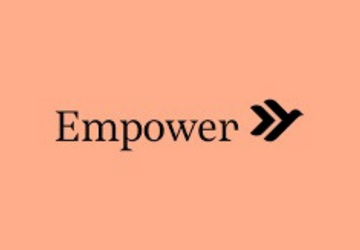Top 10 Personal Finance Apps to Manage Your Money
Author: khawarabassi
Most of us rely on paychecks, so we take our money very seriously. To stay on top of things, we tend to plan our spending and keep track of it to ensure we can pay for things like insurance and car washes. This is essentially referred to as budgeting.
You have a specific amount of money that you earn every month, and it needs to be managed so that the entire month goes smoothly. Sometimes this may not be the easiest thing to do, and for that very purpose, personal finance applications were made.
These apps monitor your spending, saving, credit score, and more, making it easy for you to keep tabs on all your finances.
A cool added feature that most personal finance apps have is that they can now be linked to your bank account on your phone, creating an easy channel for you to assess where your bank money is spent.
In this article, we will introduce you to our top 10 personal finance apps to manage your money.
Our Top 10 Personal Finance App Picks:
1. Empower
Empower tops our list due to its various investing features and obvious spending tracking, available on both iOS and Android.
Previously known as Personal Capital, this application allows its users to look at the bigger picture of their financial state and target short and long-term goals.
However, one complaint is that its interface is not considered customizable enough, and there is a minimum amount of money that you need to be working with.

2. Mint
The most downloaded personal finance application targets the average person on the street. Its ability to be customized to the user's preferences is what makes it preferred. Its most conspicuous feature is the alerts that keep its users in check.
Its major advantages are that it can provide a desktop interface and credit score tracking is free of cost. The pop-up ads might seem annoying, but it is still a great application that we highly recommend.
3. YNAB
You Need A Budget is one of the most loved financial apps because it has allowed many of its customers to get out of debt. It enables its users to take their financial situation into account so that they can plan for future investments.
The biggest standout feature of YNAB is that you can share your tracking, making it a great idea for spouses. However, the user interface is not very creative, and there is no concept of investment tracking.
4. PocketGuard
PocketGuard has a free and subscription-based model that represents the financial status of its user in the form of a customizable pie chart. One aspect that has lowered its number of users is that it is not entirely free. Some features are only available to those who hold a membership.
However, some people still use it because it shows how much money you have available to spend on specific categories like groceries in real-time. Also, there is an option to link your bank account, and the platform allows you to focus on savings and future planning.

5. Goodbudget
This application, like most others, is available on iOS and Android. Goodbudget has digitized the old-school method of budgeting, the envelope method. This scheme of things designates a specific amount of money to categories, ensuring that all aspects of one’s life are taken care of and their money accounted for.
However, small things such as adding your spending manually can be a deal-breaker for some users. On the bright side, it has very affordable pricing.
6. Stash
Along with having all the features that most personal financial applications have, Stash makes investing easier! The way this app deals with investments makes it possible for people from all walks of life to invest.
It also takes the aspect of insurance into account. The biggest setbacks are that they do not offer a free version and they do not encompass the concept of interest or tax.

7. Honeydue
Probably the most interesting application to manage your finances is Honeydue. This is because it is aimed at couples! The entire business model of this application is based on developing better communication regarding finances between partners.
This application maintains clarity between them regarding their outflow of money. It is free and enables partners to have all their financial conversations in one place.
8. Digit
Digit offers a free trial, after which the user needs to sign up for their subscription to continue using it. This app is goal-driven. This means that the user sets a goal, such as buying a car, and then the app tracks their budgeting.
It calculates the spending impact on the goal and shows them the progress. It has a user-friendly interface and promotes savings.
9. Prism
This financial application focuses its attention on utility bills while working on overall financial management in the background. It sets up reminders for its users to pay bills on time to avoid late fees.
Prism is a completely free personal finance application and allows one to have a complete view of their financial circumstance.
10. EveryDollar
Every penny is important, and that is what this application concentrates on. It maintains a record of the user's expenditure so that it can alert them when they are about to overspend. It also connects users to financial advisors who can give them ideas on how to manage their money better.
All in all, EveryDollar makes sure users have a solid financial plan and that their monthly spending is in check.
Key Takeaways:
With so many financial apps available, it can be overwhelming to choose the right one. However, by identifying your specific financial needs, you can select an app that caters to them. Our top 10 list has provided valuable insights into the best apps available in the market.
Whether you're looking for an app to help you save more, invest better, or manage your bills, there's an app out there that can meet your needs.
So, take a closer look at the apps we've recommended, and start taking control of your finances today!





